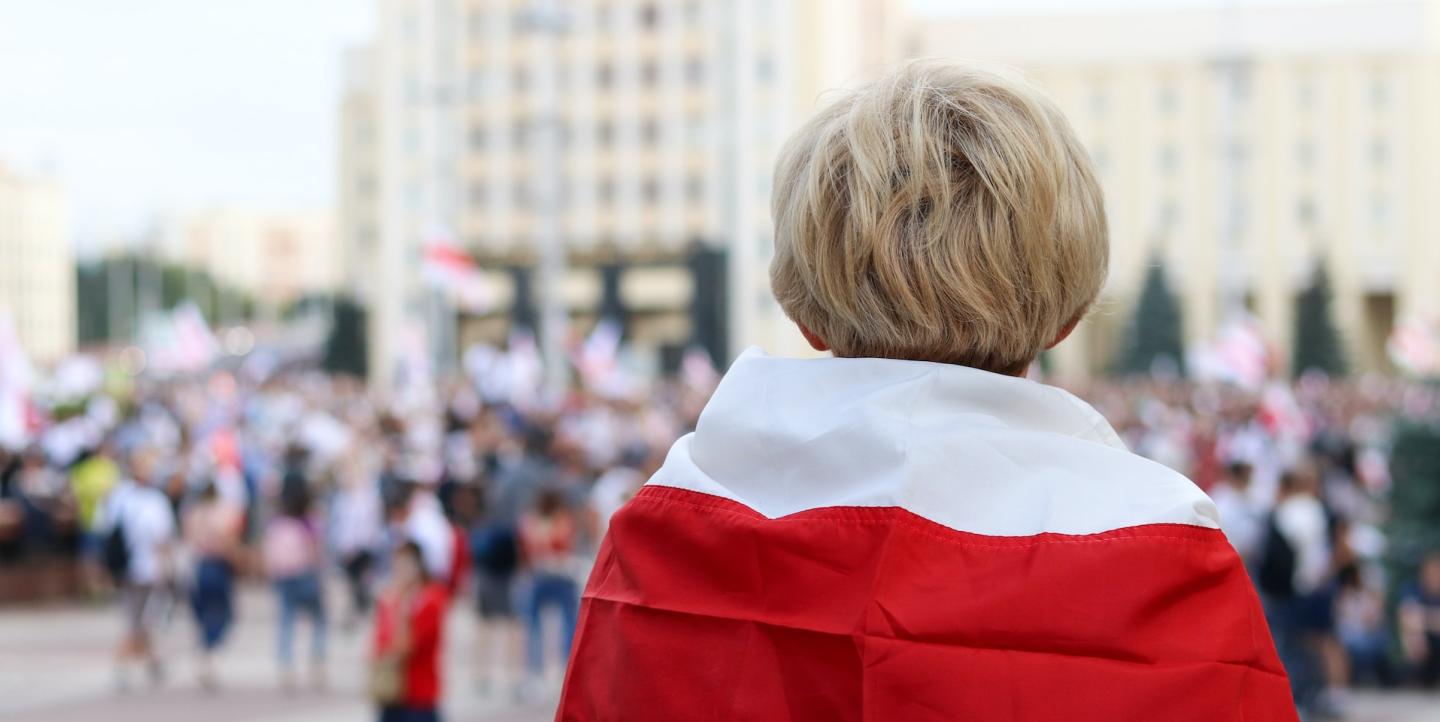Since the start of Russia’s full-scale invasion of Ukraine, attention has drifted away from Belarus’ domestic political issues.
News consumers tend to be more interested in Belarus’ connection to the major actors in the ongoing war. Belarus has allowed Russia to use its territory to launch attacks on Ukraine, and earlier this year the Wagner private military company was relocated to Belarus following its attempted mutiny in Russia.
Meanwhile, it has become increasingly difficult to obtain information about developments inside Belarus, and it’s ever more dangerous for journalists to carry out their work. Among other consequences, potential sources refuse to talk with reporters even on condition of anonymity for fear of being jailed.
With less news coverage, it may be easy for those outside the country to mistakenly conclude that everything is okay. It’s important for Belarusian journalists to explain to colleagues based abroad why we need to report on Belarus more. Importantly, we must make clear how this can be accomplished without endangering sources or reporting subjects; as in other authoritarian countries, if journalists aren’t careful, it can put those they report on in harm’s way.
Here are some recommendations from Belarusian journalists for covering the country.
Working with images and videos
One frequent topic of debate among journalists is how to responsibly publish images and videos: specifically, for instance, for people taking part in protests, should we blur their faces? Some believe this needs to be done to avoid retaliation from the State. Others assert that the police already have footage from protests and, by obscuring faces, we make decisions for people that deprives them of their individuality. Most media and civil society professionals fall in the former camp.
“Everything we use can end up turned against us,” said Evgenia Dolgaya, founder of the Politvyazynka, a project that supports female political prisoners. Dolgaya noted that it can also be important to blur distinctive tattoos. “Any careless action entails irreversible consequences. The level of repression has reached the point that people don’t leave prison, but rather die there.”
Dolgaya advised against resharing previously published photographs, too: unless you’re sure that everyone depicted in the pictures is safe and wouldn’t mind their publication, it’s better to refrain from doing so.
It’s also best not to share recorded confessions in which people repent for their crimes before the regime. These videos are often filmed after arrests, when people have been put under pressure, in some cases even tortured.
Olga Erokhina, the editor in chief of the Belsat TV channel website, offered additional recommendations for how to responsibly use visual material in reporting on Belarus:
- Blur faces in photos and videos of protests, even if protests were officially permitted at the time of filming. Regardless of whether a rally was allowed [at the time], people may be imprisoned, fired from their work, given a fine or “khimiya,” a form of punishment in which a person is either sent to a correctional facility or put under house arrest.
- Take down photos or videos of people if they request so. Content can be retained internally, but should be removed from public space for security reasons.
- Do not repost previously published photographs, articles or videos to avoid attracting the attention of authorities.
- In some cases, it may be necessary to anonymize your sources for security reasons. There are different ways to do so, explained Erokhina. You can change their name, just make sure to note that this was done for security reasons. You may also change their location, or make it more vague by naming a region instead of a specific city, for instance. Or, abandon precise geographical references entirely and instead indicate that the person is from Belarus. Consider changing, too, your source’s gender or other identifying personal details.
“We’re erasing, as much as possible, the traces of a person who may be in danger,” said Erokhina. “All the facts in the text will be presented in such a way that the security forces won’t [be able to] track down those who have told us something.”
Finding experts
Finding experts in Belarus for your reporting can be a challenge. There are so few of them left in the country, and those who remain don’t want to attract undue attention from security services.
Due to their unfamiliarity with the local context, foreign journalists may mistakenly give a platform to a person who has lost the public’s confidence, has compromised themselves, or isn’t well-versed on the topic in question.
Alina Rudina, a Belarusian media personality who now lives in Ukraine, suggested that reporters create lists of vetted experts located outside Belarus to reference for their reporting.
Going beyond official statements
There is a powerful propaganda machine operating in Belarus: it’s important for foreign journalists to cover official statements and appeals made by the Belarusian regime with a critical eye.
“Whatever socio-political reporting European journalists decide to undertake, it’s important they give their readers a complete picture of what’s happening,” said Yanina Melnikova, editor of Mediakritika. If journalists quote the point of view of the Alexander Lukashenko regime, it’s critical to explain what actually lies behind the official statements.
“The full picture isn’t so much the obligatory quoting of two sides, but rather a clear understanding that, when quoting the regime’s side, it’s necessary to give background to the European reader,” urged Melnikova. “Report on what’s behind their words, what is the weight of the words of government officials, why they make the statements they make, and how they might be implemented in practice.”
The situation in Belarus today again raises questions about accepted standards in journalism.
We’re facing new challenges that four years ago we couldn’t even fathom might one day become reality. Under constant pressure, we’ve been forced to review what we’re accustomed to and adapt to a new reality – one in which more than 1,400 people in our country have been deprived of their freedom for political reasons.
And above all, don’t let your reporting compromise the safety of your subjects and sources.
Photo by Jana Shnipelson from Unsplash.
This article was originally published on IJNet Russian. It was translated into English by Nick Flynt.


